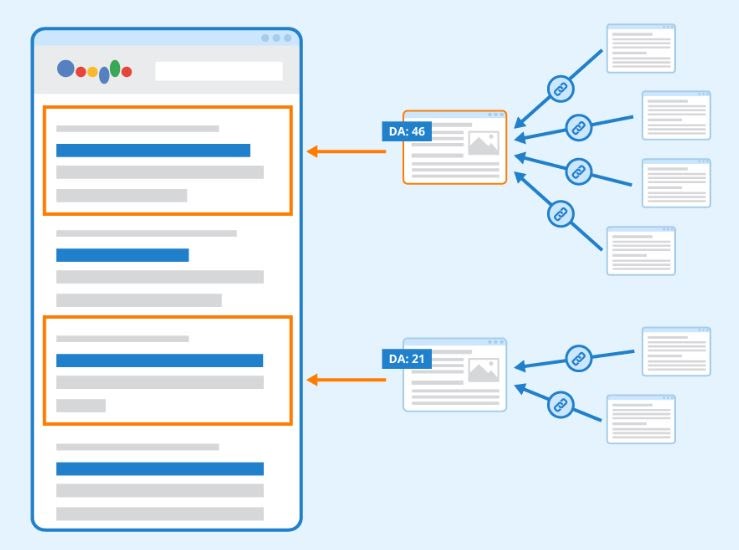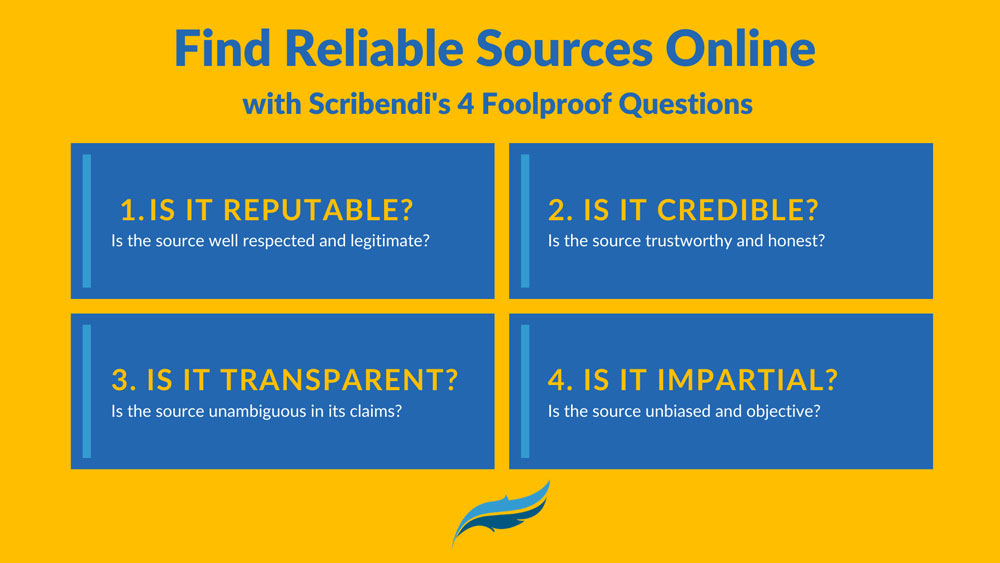1. Start with Credible Search Engines and Databases
Not all search engines provide the same quality of results. While Google is the most commonly used search engine, there are others designed to yield more reliable, academic, or specialized content. Examples include:- Google Scholar: Great for academic papers, journals, and peer-reviewed articles.
- PubMed: A database of medical research articles.
- JSTOR: An extensive collection of academic journals and books.
2. Evaluate the Source's Credibility
Once you find a website or article, ask yourself the following questions to evaluate its trustworthiness:Author's Credentials
Who wrote the article? Are they an expert in the subject? Reliable sources will usually list the author’s qualifications or credentials. If the author is unknown or doesn’t seem to have any relevant expertise, approach the information cautiously.Reputable Website
Is the site well-known and respected? News organizations, academic institutions, government websites, and non-profit organizations are more likely to provide trustworthy information. Websites ending in .edu, .gov, or .org are often more credible than commercial .com sites.Purpose of the Website
Determine whether the website is for educational, informational, or promotional purposes. Be wary of content with a heavy bias or a clear intent to sell a product. For example, a blog post about the benefits of a certain supplement written by a company selling that supplement might not provide objective information.Date of Publication
Is the information up to date? Some topics, such as science, technology, or health, evolve rapidly. Check the date of publication or the last update to ensure you're reading the most recent and relevant information.3. Cross-Check Information Across Multiple Sources
It’s essential to confirm that the information you find is consistent across different platforms. Look for multiple reputable sources that say the same thing. If two or three independent sources support the same facts, the information is more likely to be accurate. For instance, if you're researching a health condition, compare the information found on respected health websites such as WebMD, Mayo Clinic, and NIH.gov. If all these sources provide similar advice, it's likely to be trustworthy.4. Beware of Misinformation and Bias
Unfortunately, misinformation and bias are rampant online. Fake news, exaggerated claims, and skewed perspectives are everywhere, especially on social media and less regulated websites. To spot misinformation:- Look for Sources: Reliable articles will reference their sources, whether scientific studies, official reports, or expert opinions.
- Check for Bias: Everyone has some bias, but it’s important to recognize when an article pushes an extreme agenda or viewpoint. Reading from multiple perspectives can give a more balanced understanding of the topic.
- Use Fact-Checking Websites: Websites like Snopes, FactCheck.org, and PolitiFact are excellent tools for verifying questionable claims or rumors circulating online.
5. Look for Peer-Reviewed and Academic Publications
When conducting research on serious topics, academic articles and peer-reviewed publications are the gold standard. These papers go through a rigorous process where experts in the field review and critique the research before it’s published. Some databases for finding such publications include:- Google Scholar
- JSTOR
- IEEE Xplore
- PubMed (for medical and life sciences)
6. Assess the Writing Style and Quality
How an article is written can also give clues about its reliability. Professional, well-written content is more likely to come from a credible source. Pay attention to:- Grammar and Spelling: An article with frequent errors may not be from a professional source.
- Tone: Reliable sources use an objective and neutral tone. Articles that are overly emotional, hyperbolic, or use sensational language may not be trustworthy.
- Logical Flow: Does the article make clear, rational arguments backed by evidence? If it jumps to conclusions without proper explanation, it’s a red flag.
7. Understand the Role of Algorithms
Be mindful of how search engines and social media platforms rank content. Algorithms prioritize content that’s popular, not necessarily accurate. This can result in misleading articles appearing at the top of your search results. To counter this:- Go Beyond the First Page: The first few results aren’t always the best. Don’t hesitate to dig deeper into the second or third page of search results.
- Use Keywords Wisely: Tailor your search queries to include specific terms like “review,” “study,” “research,” or “journal article” to get more academic or authoritative results.
8. Engage with Online Communities Cautiously
Forums, social media groups, and online communities can be valuable places to find information and discuss various topics. However, these platforms often host a mix of expert advice, personal opinions, and misinformation. To get the most out of these spaces:- Check for Moderation: Communities with active moderation tend to have more accurate information and less spam.
- Look for Cited Evidence: In discussions, pay attention to users who back up their claims with credible sources or links to reputable studies.
- Remain Skeptical: Don’t take advice at face value, especially when it comes to personal anecdotes or opinions.
9. Trust Your Instincts
Finally, trust your instincts when evaluating online information. If something seems too good to be true or feels off, it’s worth double-checking. If an article makes extraordinary claims without extraordinary evidence, it’s wise to proceed with caution. In an age of information overload, learning to navigate the internet smartly and discerning between reliable and unreliable sources is an essential skill. By following these strategies, you can better equip yourself to find accurate, well-sourced information and avoid the pitfalls of misinformation. Read more :1= https://checkwebsitedr.com/blogs/how-to-search-for-reliable-information-on-the-internet/
2= https://checkwebsitedr.com/blogs/how-to-search-for-secure-and-private-browsing-options/
3= https://checkwebsitedr.com/blogs/how-to-search-for-family-history-and-genealogy-records/
4= https://checkwebsitedr.com/blogs/how-to-search-for-competitors-and-analyze-their-strategies/
5= https://checkwebsitedr.com/blogs/how-to-search-for-job-openings-in-your-field-a-step-by-step-guide/
6= https://checkwebsitedr.com/blogs/how-to-search-for-healthy-recipes-that-fit-your-diet/
7= https://checkwebsitedr.com/blogs/how-to-search-for-and-apply-for-grants/
8= https://checkwebsitedr.com/blogs/how-to-search-for-the-right-keywords-for-your-blog/
9= https://checkwebsitedr.com/blogs/how-to-search-for-local-services-near-you/
10= https://checkwebsitedr.com/blogs/how-to-search-for-the-best-travel-deals-and-discounts/


